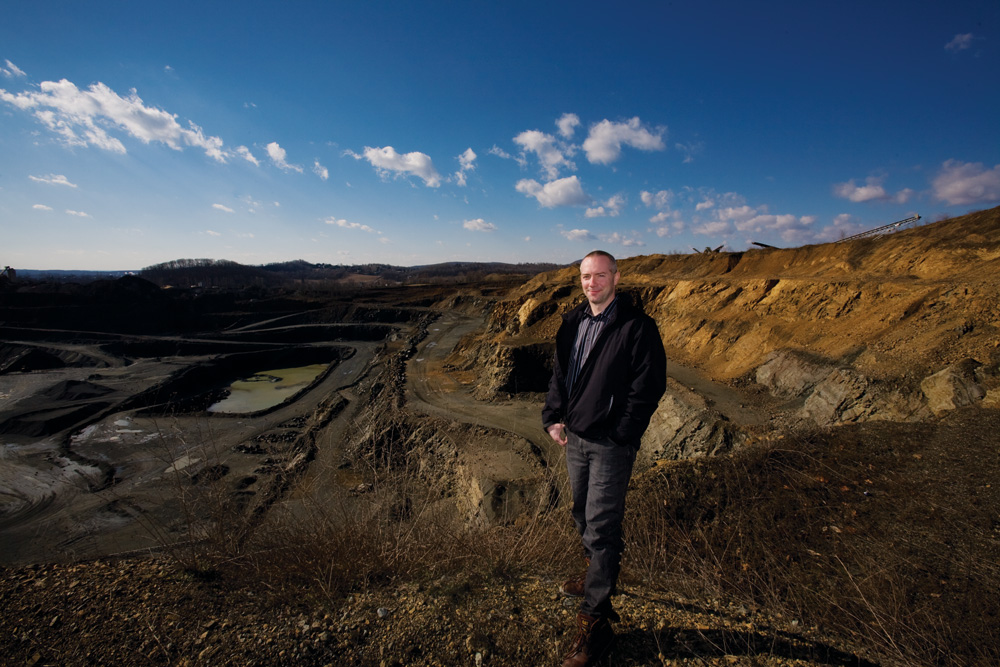If you’re going to extract stone from a 350-acre hole adjacent to a borough of 950 residents, Rod Martin has learned that it helps to live in a house beside the quarry, where the locals can see that you and your family also care about the noise, dust and scenery.
The Martin family has quarried granite in Bechtelsville, Pa., since 1953. “We’re entrenched in the community – my property is at the back of one quarry,” said Rodney Martin, vice president of Martin Stone Quarries in southeast Pennsylvania, near Allentown. “We live in the community where we work; it gives you a different perspective.”
The Martin family runs its own sweepers to keep the town’s streets clear, plus two water trucks for sprinkling water on the streets when necessary to keep the dust down. They’ve created a wetland habitat and regularly host tour groups on their business premises. “We do it because we want to, but it pays off,” Martin said of his company’s neighborliness. “We know we have to stay active – a quarry is not the most desirable neighbor in some people’s eyes, so we have to do the best we can.”
After graduating from Eastern Mennonite University in 1995, Martin joined the family business and helped it to become an industry pacesetter. His work is now receiving national recognition. He was named AggMan of the Year 2013 by Aggregates Manager, the leading industry publication. He will receive the award in March 2014 at the annual industry convention to be held in Las Vegas – it’s the equivalent of being named to “Who’s Who” in the industry.
“We’re mining a non-renewable reserve, in a sense,” Martin told EMU news services. “But a lot of our product is sold to blacktop plants. And blacktop, as we tell our tours, is one of the most recycled resources. You mill up the old roadways and use them to help make the new surface. Our biggest customers are in southern New Jersey. We sell to blacktop plants there, then pick up sand to sell to concrete plants here.”
In 2005-06, when Martin wanted to move an asphalt plant to access more granite, he and his cousin Trevor went door-to-door, explaining their plans for the mine, including their intention to build a berm planted with trees to block the view of mining operations. Their efforts paid off with a short rezoning period and few community-wide meetings. “Rezoning went very smoothly because the community knows us, and knows we will be affected too,” said Martin.
The quarry produces crushed and granite, as well as Martin Infield Mix for baseball fields. In fact, the infield of the EMU baseball field is covered with this mix from Martin Stone Quarries.
Rod Martin’s paternal grandparents, Henry and Dorothy Martin, brought the quarry into the family in 1953, after Henry worked for several years at his brother’s quarry in Lancaster, Pa. The “family” part of the business remains central. Rod and his wife Jennifer, and are raising their two boys, 13-year-old Matthew and 7-year-old Ryan, right next to the quarry. Rod and his cousins, Travis and Trevor, take care of the day-to-day operations.
“It’s not bad working with your family,” said Rod. “Going through college I didn’t have it set in my mind that’s what I would do, but I always enjoyed it [during summers and holidays]. Then once I got out of school, I just kind of grew into it. We’re always looking at the health of the business so that we can hand it down to our kids. We’re family, we work through things.”
The Martin family is already thinking several generations ahead, discussing possible other uses for the 350-acre site – such as a park or golf course – after extracting the final ton of granite of the 200 million tons estimated to remain in the ground.
Rod majored in business administration at EMU. During his junior and senior years he played basketball under former head coach Tom Baker. “He was a very good mentor,” recalled Rod. “I learned a bunch in class and just as much out of class playing sports.” For his cross-cultural, Rod went to Jamaica, led by business department faculty: “We weren’t in resort towns all the time. It’s nothing that you think of when you think of Jamaica. It was an eye-opening thing.”
Being named AggMan of the Year came as a surprise (“I didn’t even know I was nominated”) and presented Rod with a new challenge: “My next month will be spent trying to put my speech together for the award ceremony in front of 1,000 people.”
